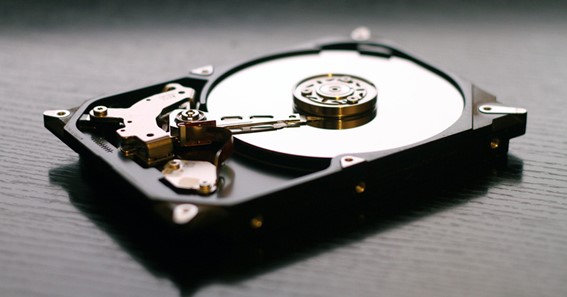Are you curious to know what is a fixed disk? You have come to the right place as I am going to tell you everything about a fixed disk in a very simple explanation. Without further discussion let’s begin to know what is a fixed disk?
In the realm of computer hardware, data storage is a fundamental aspect that enables the preservation and retrieval of information. Among the various storage options available, fixed disks play a pivotal role in storing and accessing data on personal computers and servers. In this blog post, we will delve into the concept of fixed disks, their characteristics, and their significance in modern computing.
What Is A Fixed Disk?
A fixed disk, also known as a hard disk drive (HDD), is a non-removable data storage device that utilizes magnetic storage technology to store and retrieve digital data. It consists of one or more rigid, magnetically sensitive platters that spin at high speeds within an enclosed housing. Each platter is coated with a thin magnetic material, and data is recorded and read from these platters using read/write heads.
Characteristics Of Fixed Disks:
-
Storage Capacity:
One of the key features of fixed disks is their vast storage capacity. Today’s fixed disks can store several terabytes (TB) of data, making them suitable for storing large amounts of files, applications, and operating systems.
-
Durability and Reliability:
Fixed disks are designed to be robust and reliable. Their rigid construction and protective casing safeguard the sensitive internal components from external damage, ensuring data integrity and longevity.
-
Performance:
Fixed disks offer fast data access and transfer rates. The rotational speed of the platters, measured in revolutions per minute (RPM), influences the speed at which data can be read or written to the disk. Higher RPM values result in faster performance.
-
Random Access:
Fixed disks provide random access to data, meaning that data can be accessed directly, regardless of its physical location on the disk. This enables quick and efficient retrieval of information, making fixed disks ideal for applications that require frequent and random access to data.
-
Compatibility and Connectivity:
Fixed disks are compatible with a wide range of computers and operating systems. They typically connect to a computer via interfaces such as Serial ATA (SATA) or SCSI (Small Computer System Interface).
Significance In Modern Computing:
Fixed disks are an integral component of modern computing systems, serving several essential functions:
-
Operating System and Software Storage:
Fixed disks serve as the primary storage medium for operating systems and software applications. They store the necessary files and data required for the computer to function, allowing users to install and run various programs.
-
File and Data Storage:
Fixed disks are used for storing user-generated files, documents, photos, videos, and other data. They provide a reliable and accessible storage solution for personal and business data.
-
Backup and Recovery:
Fixed disks are commonly used for data backup and recovery purposes. By creating regular backups of important files and system images, users can protect against data loss and restore their systems in the event of hardware failure or software issues.
-
Server Storage:
In server environments, fixed disks are employed for storing vast amounts of data and hosting websites, databases, and other critical applications. They provide reliable, high-capacity storage solutions for businesses and organizations.
Conclusion:
Fixed disks, or hard disk drives (HDDs), have been a cornerstone of data storage in computing for several decades. Their high storage capacity, durability, performance, and compatibility make them a vital component in personal computers, servers, and other digital systems. While solid-state drives (SSDs) have emerged as a popular alternative due to their faster performance, fixed disks continue to be widely used due to their cost-effectiveness and large storage capacities. As technology evolves, fixed disks are likely to persist as an essential storage solution, supporting our increasing data storage needs and enabling seamless access to information.
FAQ
What Is A Fixed Disk Drive?
A disk drive in which the storage medium is permanently attached within the device. The drive may contain more than one disk — the so-called disk stack. The individual disks in the stack are called platters. Both sides are coated and the platters are mounted on a common spindle.
Is A Fixed Disk A Ssd?
A “Fixed Hard Drive” is NOT an SSD (Solid State) drive.
What Is An Example Of A Fixed Disc?
Hard drives in computers are some of the most common examples. Nearly every modern computer has one or more of these drives that store all of the computer’s saved information, including operating system data, applications, documents, and photos.
Is Fixed Hard Disk Same As Ssd?
SSD vs HDD: What’s the difference? HDDs are traditional storage devices with spinning platters that read and write data. SSDs use newer technology that stores data on instantly accessible memory chips. SSDs are faster, quieter, smaller, consume less energy, and more durable.
I Have Covered All The Following Queries And Topics In The Above Article
What Is A Fixed Disk?
What Is A Fixed Disk Linkedin
What Is A Fixed Mbr Disk
What Is A Fixed Hard Disk
What Is A Fixed Disk Mcq
What Is A Local Fixed Disk
- What Is A Fixed Disk
